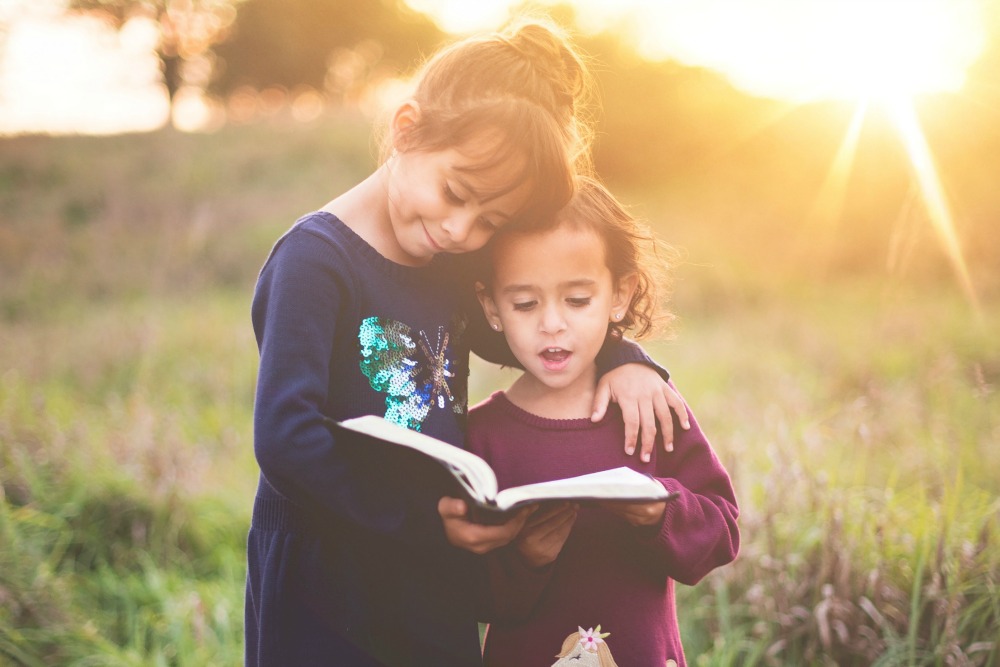Recently I was browsing Pinterest, and I noticed a litany of “how-to” parenting articles throughout my feed. Since that day I’ve consistently observed the same pattern each time I visit the website. Article after article, I find tips about how to make our children stop doing something we don’t like or teach our children how to be or do something we do like.
Examples just from today, all of which have been re-pinned thousands of times, include:
- “How to Teach Your Child to Have Self-Control Over Their Thoughts”
- “How to Teach Your Child to be Humble and Kind”
- “How to Teach Your Child Self-Control”
- “How to Teach Your Children to Play By Themselves”
- “Teaching Your Toddler to Count to 100: Our Top 7 Ways”
- “How to Stop the Whining and Crying”
Certainly there’s nothing wrong with wanting to raise a child who is humble and kind. However, this pattern seems to suggest we ought to have an agenda for who our kids will be. Rather than focusing on ways to support our children in being the best version of themselves, we’re led to believe we must intentionally shape every aspect of their personalities.
It also seems to encourage parents to change things about their children which they find uncomfortable or disagreeable. To be clear, screaming and whining can be annoying. I won’t begin to argue that point. But when an article focuses on how to stop a behavior simply because we find it obnoxious, I wonder if the intent is misplaced. Are we attempting to address a behavior because it will benefit our kids or because we think it will make our lives easier?
Some of these articles could be a recipe for failure. For example, self-control requires a certain amount of cognitive and emotional development. Teaching it before a child is capable of controlling impulses won’t be effective. Our time would be better spent acting as our child’s “upstairs brain” while their immature prefrontal cortex develops (for more on brain development, I recommend The Whole-Brain Child).
I also wonder if these “how-to’s” are always a good use of our time. What’s the purpose of teaching a toddler to count to 100? Does that guarantee he’ll be in Mensa? Is the point to give me something to brag about at playdates? Just because something is possible doesn’t mean it’s worth doing or that it’s the best way to spend my son’s precious childhood.
Lastly, research suggests there is great fallacy in attempting to suppress our children’s emotions. It’s important to assist our children in developing a healthy expression of emotions, but attempting to squash them all together has negative, long-term consequences.
The following are some questions to ask yourself as you search for wisdom in parenting blogs and articles:
Who is writing this article?
There are loads of great articles written by parents for parents, and I don’t mean to diminish the beauty of parents supporting one another. However, we should also recognize that other parents are speaking from experience with what worked for their specific children. Their suggestions are not necessarily based in empirical research or years of education. You may find helpful suggestions, but be sure to remember these are not authorities on the topics of development, education, or child psychology.
Does it address development?
Expectations vary widely depending on age and stage of development. What may be appropriate for an eight-year-old won’t necessarily apply to a five-year-old. When you’re reading an article about how to teach your child something, look for information in the article about development. If the writer doesn’t address this, don’t assume it’s appropriate for your child.
Does it represent my values?
Any article which encourages the use of media to teach my young child academics is incongruent with my value of play-based learning for small children. Sometimes as parents we can feel like we are failing our children when we read how our peers are parenting. Keeping our own personal values in mind will allow us to make intentional decisions in which we can feel confident.
What’s the motivation?
Here’s what I’ve learned in my short four years as a mother: most of parenting is dealing with my own stuff. There’s a big difference between an article which focuses on how we can support our children and one intended to stop a behavior we just don’t like. The former is child-centered, the latter is parent-centered. Rather than attempting to stop our kids from crying or “causing drama,” our time might be better spent addressing how we can manage our own reactions while asking, “is there an unmet need behind this behavior?”
We all have high hopes for our children, but it’s important to remember they are whole, complete beings separate from us. They reserve the right to become who they want to be, and facilitating their development without focusing on our own egos is admirable indeed.
If we want to raise intelligent, kind people with self-control, the best thing we can do is work on ourselves, not our kids. Allow them to learn through exploration, model kindness and self-control, and work on your own ability to remain calm and compassionate with your children. This paradigm shift can deepen your connection with your children, and it doesn’t even require flash cards.
[irp posts=”2308″ name=”7 Things You Should Never Say to the Parent of a Highly Sensitive Child (by Megan Stonelake)”]
About the Author: Megan Stonelake
 Megan Stonelake is a therapist, blogger, and mama to a sweet four year old. Most recently she has written for Scary Mommy, Huffpost Blog, Sammiches & Psych Meds, and Parent.co. Her fascinations include child development, empathy, and all things parenting. Head over to her blog, Empathic Parenting, where you can sign up for her newsletter to receive tips and musings on peaceful parenting. You can also follow her on Twitter and Facebook.
Megan Stonelake is a therapist, blogger, and mama to a sweet four year old. Most recently she has written for Scary Mommy, Huffpost Blog, Sammiches & Psych Meds, and Parent.co. Her fascinations include child development, empathy, and all things parenting. Head over to her blog, Empathic Parenting, where you can sign up for her newsletter to receive tips and musings on peaceful parenting. You can also follow her on Twitter and Facebook.



This is a different type of a good areticle. Parents will be aware by this article. Most appreciable…..!
This is a lovely article. I completely agree. I am pleased to know that you are out there sharing some sanity. We write about similar things! I have a series that teaches empathy to children using humor.
Bravo for you.